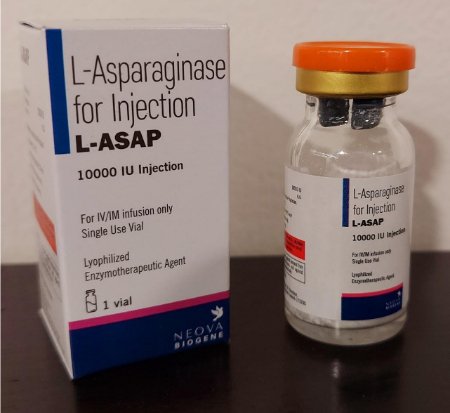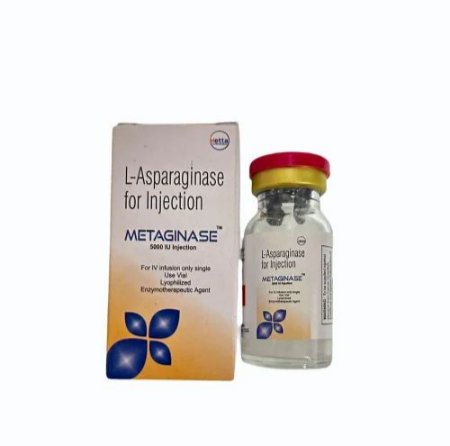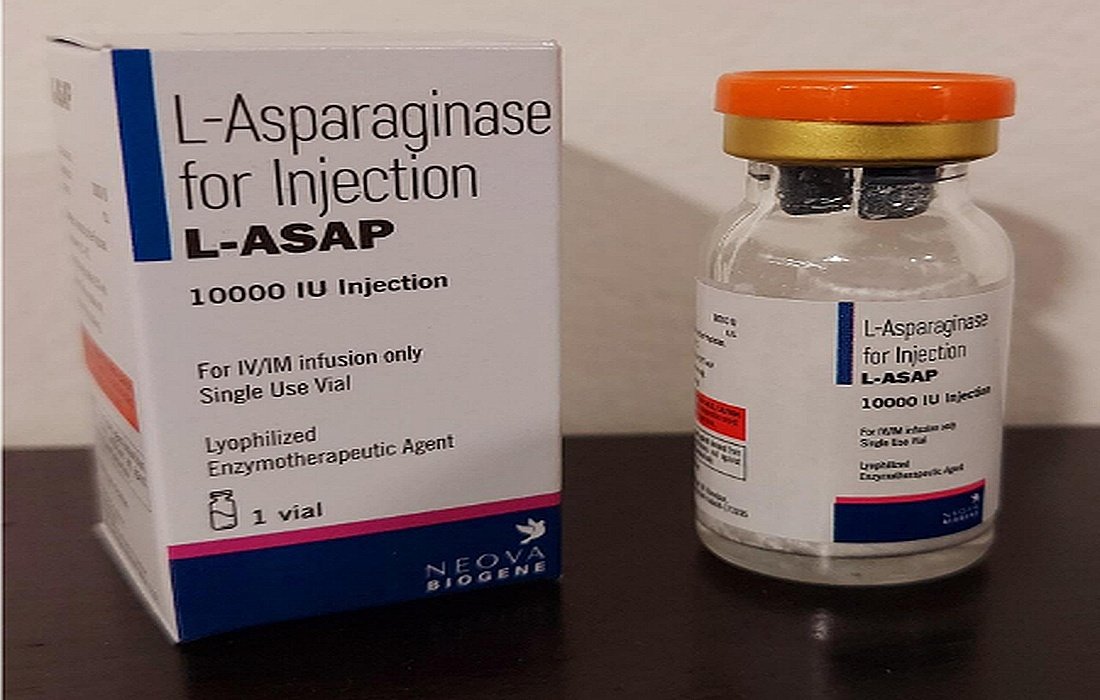
Uses of Asparaginase
Asparaginase Specifications
• Drug Name: Asparaginase
• Latin Name: Asparaginase
• Brand Name: Elspar
• Drug Category: Cancer Medications
• Forms of Medication: Powder
• Drug Sale: Prescription Required
Indications for Asparaginase
• Treatment of Acute Lymphoblastic Leukemia
• Treatment of Acute Myeloid Leukemia
• Treatment of Non-Hodgkin Lymphoma
Contraindications for Asparaginase
• Drug Allergy: If someone is allergic to Asparaginase or any component of it, they should not use this medication. Allergic reactions can be severe and even fatal.
• Pancreatitis: Those with a history of pancreatitis or currently suffering from it should not use Asparaginase as it may increase the risk of pancreatitis.
• Blood Clotting Disorders: Asparaginase may cause blood clotting issues. Therefore, people with clotting disorders should use this medication cautiously under medical supervision.
• Pregnancy and Breastfeeding: Pregnant and nursing women should avoid taking Asparaginase because the safety of this drug during these times is not fully established.
Dosage and Administration of Asparaginase
• Patient Age
• Type and Severity of the Condition Being Treated
• Reaction to the Initial Dose of the Medication
• Other Medical Conditions of the Patient
• The type and stage of cancer will affect the dosage and how Asparaginase is taken.
• Other medications the patient is taking may also influence the dosage and method of Asparaginase administration.
• This drug is typically administered by a healthcare professional, usually in a hospital, through injection into a muscle, under the skin, or into a vein. Dosage is based on your medical condition and response to treatment.
• Asparaginase comes in various forms, each possibly requiring different administration methods.
• Asparaginase is usually used in combination with other chemotherapy medications, and its administration method may depend on these combinations.
Side Effects of Asparaginase
• Injection site pain or swelling, nausea, vomiting, stomach cramps, loss of appetite, headache, fatigue, or drowsiness may occur.
• If you experience any serious side effects, contact your doctor immediately, including:
• Severe stomach pain accompanied by nausea/vomiting
• Abdominal swelling
• Mental/Emotional changes
• Tremors
• Muscle stiffness
• Joint pain
• Swelling of hands/feet/lower legs
• Yellowing of the eyes/skin
• Unusual bleeding or bruising (like nosebleeds or black/bloody stools)
• Symptoms of high blood sugar (like unusual thirst, frequent urination)
• Vision changes
• Fainting
• Severe headache
• Severe dizziness
• Seizures
• Chest pain
• This medication can lower the body’s ability to fight infections. If you experience symptoms of infection like a persistent sore throat, fever, chills, or sores in the mouth or lips, contact your doctor right away.
• A very serious allergic reaction to this medication is rare. However, if you notice signs of a serious allergic reaction such as rash, severe itching/swelling (especially of the face/tongue/throat), severe dizziness, and trouble breathing, seek medical help immediately.
Note: If you experience any of these symptoms, be sure to inform your doctor.

Side Effects of Asparaginase
Drug Interactions with Asparaginase
• Chemotherapy medications
• Corticosteroids
• Anticoagulants
• Blood sugar-lowering medications
• Immune system suppressants
Note: To prevent these interactions, provide your doctor with a list of all medications you are taking.
Precautions for Using Asparaginase
•Drug Allergies:Before receiving Asparaginase, inform your doctor or pharmacist about any allergies you may have, including allergies to other medications. This product may contain inactive ingredients that can cause allergic reactions or other problems. Consult your pharmacist for more details.
•Asparaginase Use During Pregnancy:If you are pregnant or planning to become pregnant, inform your doctor. You should not conceive while using Asparaginase. This drug may harm the fetus. Your doctor must do a pregnancy test before starting this medication. While using Asparaginase and for 3 months after your last dose, discuss non-hormonal birth control methods (like condoms or diaphragms with spermicide) with your doctor. If you become pregnant, talk to your doctor immediately about the risks and benefits of this drug.
•Asparaginase Use During Breastfeeding:It is unclear whether Asparaginase enters breast milk. Due to potential risks to the infant, breastfeeding is not recommended while using this medication. Consult your doctor before breastfeeding.
•Asparaginase Use in Seniors:Asparaginase is primarily used for treating certain cancers, especially Acute Lymphoblastic Leukemia (ALL). While this medication is prescribed for treating cancer in all age groups, including seniors, special considerations regarding its use in older adults should be taken into account.
•Asparaginase Use in Children:Asparaginase is an essential medication for treating Acute Lymphoblastic Leukemia (ALL) in children. It helps halt tumor growth by preventing protein production in cancer cells. However, like any other medication, Asparaginase also has side effects that must be monitored more closely in children.
How It Works
• Asparaginase is an enzyme that interferes with the natural materials needed for the growth of cancer cells. It works by eliminating or stopping the growth of cancer cells.
Storage Conditions for Asparaginase
• This medication is prescribed in a hospital or clinic and is not stored at home.
Recommendations for Asparaginase Users
• Before any surgery, inform your doctor or dentist about all products you are using (including prescription, over-the-counter, and herbal products).
• Exercise caution when using sharp objects like razors or nail clippers, and avoid activities like contact sports to reduce the risk of cuts, bruises, or injuries.
• Inform your healthcare provider before receiving any vaccinations that you are using Asparaginase. Avoid contact with individuals who have recently received live vaccines (like nasal flu vaccines).
• This medication may cause drowsiness. Alcohol or marijuana (cannabis) can increase drowsiness. Avoid driving, operating machinery, or doing anything that requires alertness until you can do so safely. Limit consumption of alcoholic beverages. If you use marijuana (cannabis), consult your doctor.
• Before using this medication, inform your doctor or pharmacist about your medical history, especially regarding pancreatitis and liver disease.
Important Reminder
The information provided is for awareness only; self-treatment and medication based solely on this information is not advised. Please consult a specialist for medication.
Compiled by:SelMagz Health Section







